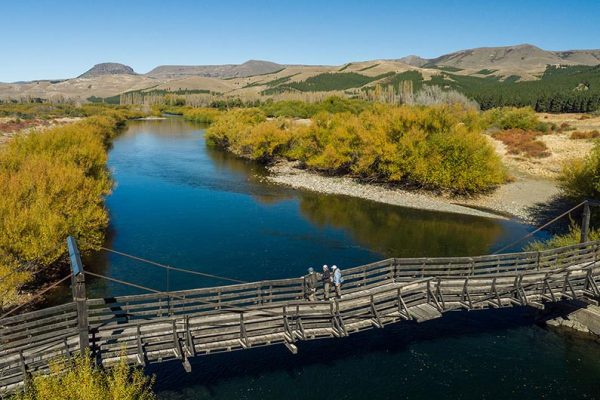Auburn University’s School of Forestry and Wildlife Sciences is on the national forefront in bringing new career options to students interested in forests, wildlife, and the environment. These careers require professionals with multidisciplinary skills that incorporate the latest business trends, technology, and sustainability practices.
“We are expanding our degree programs to help our students develop necessary professional skills to excel in today’s job market,” Dean Janaki Alavalapati said. “These programs will provide our students with tremendous opportunities within traditional and emerging industries.”
Within the state of Alabama alone, forestry, wildlife, and natural resources industries contribute nearly $24 billion to the economy each year. During the past two years, the school has developed new bachelor’s degree programs in wildlife enterprise management, geospatial and environmental informatics, and sustainable biomaterials and packaging.
Wildlife Enterprise Management
The new degree in wildlife enterprise management provides the education and skills needed for a variety of careers in hunting and fishing industries. “Graduates will hit the ground running with lodges, hunting preserves, fishing resorts, outdoor experience companies, and many other businesses,” Alavalapati said.
Students take classes across campus, primarily in the School of Forestry and Wildlife Sciences, College of Human Sciences, and the Harbert College of Business. Courses include wildlife management, hotel and restaurant management, accounting, and marketing, to name a few. In addition to earning the new bachelor’s degree, students will earn a minor in business.
Students will have a wide range of exciting internship opportunities to consider. “We expect to have 75-100 internships offered each year by outdoor companies located around the world,” Alavalapati said. “Students will gain valuable, on-the-job training.”
Geospatial and Environmental Informatics
Forestry and Wildlife Sciences students are using smartphone technology, but not in typical college-student fashion for social media. Geospatial technology—which incorporates satellite and cell signals for mapping apps and location services in phones and GPS units—is helping prepare students for careers in many fields.
“The geospatial and environmental informatics degree is designed to apply multilayered geographic data across diverse fields including ecology, agriculture, business, geosciences, climate science, and civil engineering,” Alavalapati said.
Governmental agencies, private corporations, and consulting firms are using geographic information systems, the global positioning system, satellite-based remote sensing, and computer simulations to acquire, manipulate, and store geographic information for analysis and decision-making.
Graduates have many career opportunities available to them as specialists, planners, analysts, consultants, resource managers, and developers.
Sustainable Biomaterials and Packaging
“Environmental concerns and evolving technologies are moving companies toward the use of sustainable forest biomaterial for everything from packaging, cosmetics, and automobiles to appliances, pharmaceuticals, and commercial construction,” Alavalapati said. “Auburn’s new sustainable biomaterials and packaging degree prepares students for careers in these industries.”
Packaging is currently the third largest industry in the world. Many traditional forest product companies are expanding their operations to include biodegradable wood-based packaging. Likewise, there are future opportunities in plant-based packaging. The degree will position Auburn students to be at the forefront of this economic boom.
“These developments are fueling the demand for new professionals with diverse expertise,” Alavalapati said.
The degree program is collaboratively taught by faculty from the School of Forestry and Wildlife Sciences and the colleges of Agriculture, Engineering, Business, and Architecture, Design and Construction.
To learn more about these new degrees and other degree programs, visit the School of Forestry and Wildlife Sciences website.












